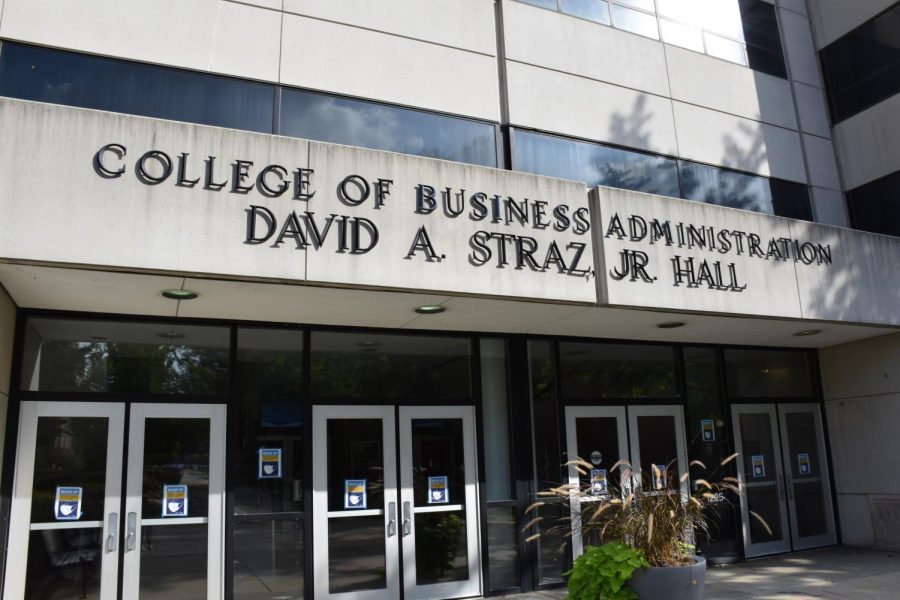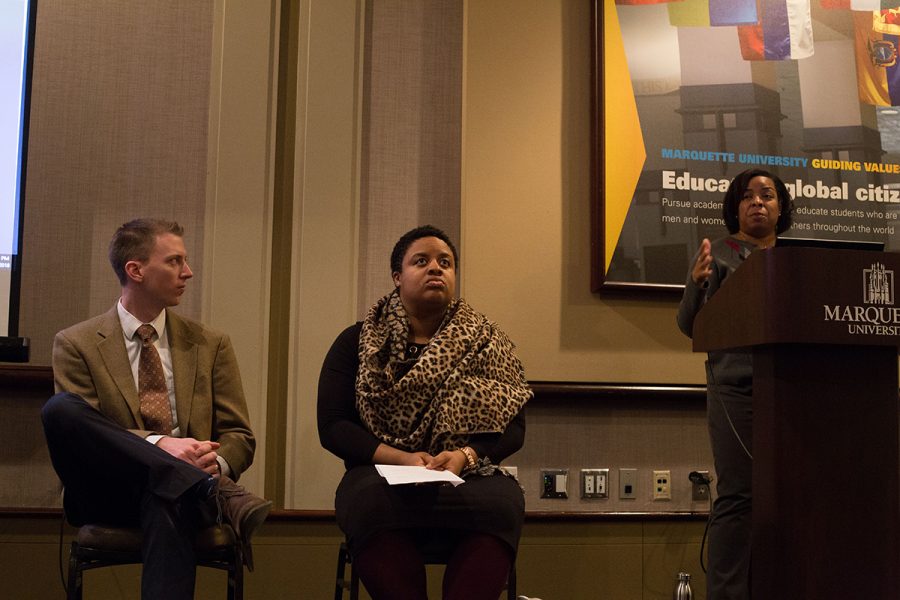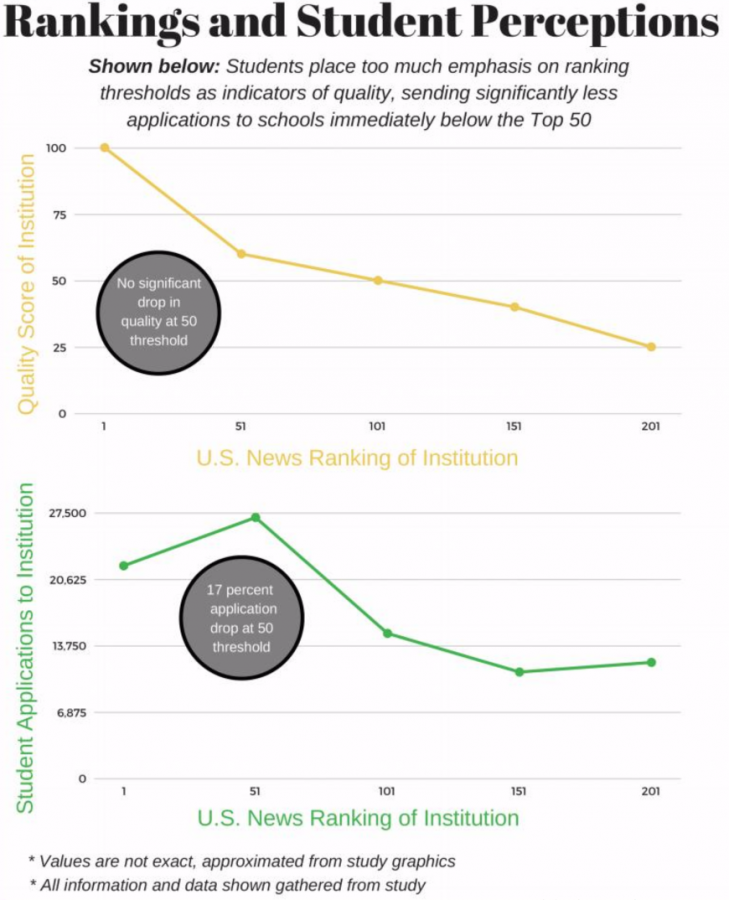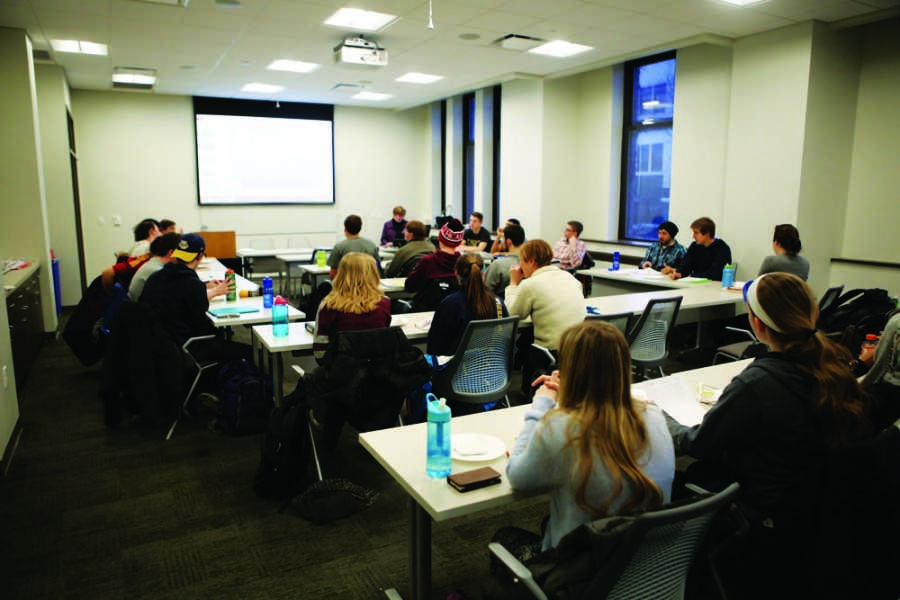The Marburg Memorial Lecture is an annual economics-based lecture given by a distinguished economist and sponsored by Marquette’s College of Business Administration.
The lecture is named after the late Theodore F. Marburg, a long-time Marquette faculty member of the economics department, and was created from funds donated by the Marburg family as well as through the support of the Center for Applied Economics.
The first Marburg Lecture was in 1995 and it has been occurring annually since 2004.
This year’s speaker will be Matthew Jackson, the William D. Eberl professor of economics at Stanford University.
“We’re really proud of being able to bring together a whole bunch of people,” James McGibany, chair of the economics department at Marquette, said.
This lecture series works to provide a forum for the discussion of the moral, philosophical and social dimensions of economic issues as well as to continue Marburg’s commitment to the economic aspects of peace and justice.
“Economists don’t only care about maximizing economic growth or controlling inflation,” Walter Melnik, assistant professor of economics, said. “We also consider how institutions like markets or social networks influence the way we interact with each other at the individual level, and the implications for how our society functions.”
This year’s lecture was organized by professors Walter Melnik, Ethan Schmick and Andrew Smyth of the economics department.
It will be held on Friday, Oct. 15 at 3 p.m. at the Alumni Memorial Union Ballroom.
The lecture will focus on dynamics of social networks and their implications for inequality and economic mobility.
“This is a burgeoning field that has revolutionized our understanding of inequality and social mobility, financial markets, the political process, crime and many other social phenomena,” Melnik said. “The Marburg Lecture presents a remarkable opportunity to learn about this field of research.”
Matthew Jackson is a leading scholar in the fields of game theory, microeconomic theory and the study of social and economic networks.
Jackson is also an external faculty member of the Santa Fe Institute, a member of the National Academy of Sciences, a fellow of the American Academy of Arts and Sciences, a fellow of the Econometric Society, a Game Theory Society Fellow and an Economic Theory Fellow.
He has served on the editorial boards of Econometrica, Games and Economic Behavior, Proceedings of the National Academy of Sciences, the Review of Economic Design and as the president of the Game Theory Society.
Jackson has published many articles in various economic fields, as well as two books: “The Human Network” and “Social and Economic Networks.”
His other honors include a Guggenheim Fellowship, the Social Choice and Welfare Prize, the von Neumann Award from Rajk Laszlo College, an honorary doctorate from Aix-Marseille University, the Jean-Jacques Laffont Prize from the Toulouse School of Economics, the B.E. Press Arrow Prize for Senior Economists and various teaching awards.
“Professor Jackson was ultimately chosen because of the relevance of his research on social networks and inequality to current events,” Andrew Smyth, assistant professor of economics, said.
Past lecturers have included Eric Rosengren, president of Federal Reserve Bank of Boston, Esther Duflo, professor of economics at Massachusetts Institute of Technology and Devin Pope, professor of behavioral science and economics at the University of Chicago.
Topics discussed in previous years include economic fragility, behavioral economics, the global energy challenge, the impact of economics on other disciplines, why cities are crucial to economic development and the use of field experiments in economics.
“We already have our speaker for next year. That person is going to talk about poverty issues and topics related to that,” McGibany said.
The Marbug Lecture is open to the public and free to attend. Anyone wanting to attend must register on the Marquette University Business website.
This story was written by Bailey Striepling. She can be reached at [email protected].











